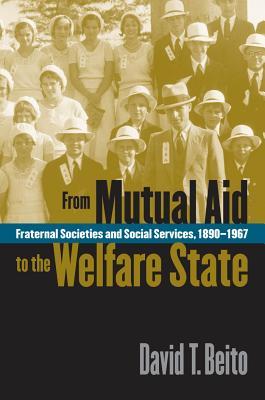
Book
From Mutual Aid to the Welfare State: Fraternal Societies and Social Services, 1890-1967
(Write a Review)
Paperback
$55.00
Much more than a means of addressing deep-seated cultural, psychological, and gender needs, fraternal societies gave Americans a way to provide themselves with social-welfare services that would otherwise have been inaccessible, Beito argues. In addition to creating vast social and mutual aid networks among the poor and in the working class, they made affordable life and health insurance available to their members and established hospitals, orphanages, and homes for the elderly. Fraternal societies continued their commitment to mutual aid even into the early years of the Great Depression, Beito says, but changing cultural attitudes and the expanding welfare state eventually propelled their decline.
Much more than a means of addressing deep-seated cultural, psychological, and gender needs, fraternal societies gave Americans a way to provide themselves with social-welfare services that would otherwise have been inaccessible, Beito argues. In addition to creating vast social and mutual aid networks among the poor and in the working class, they made affordable life and health insurance available to their members and established hospitals, orphanages, and homes for the elderly. Fraternal societies continued their commitment to mutual aid even into the early years of the Great Depression, Beito says, but changing cultural attitudes and the expanding welfare state eventually propelled their decline.
Paperback
$55.00